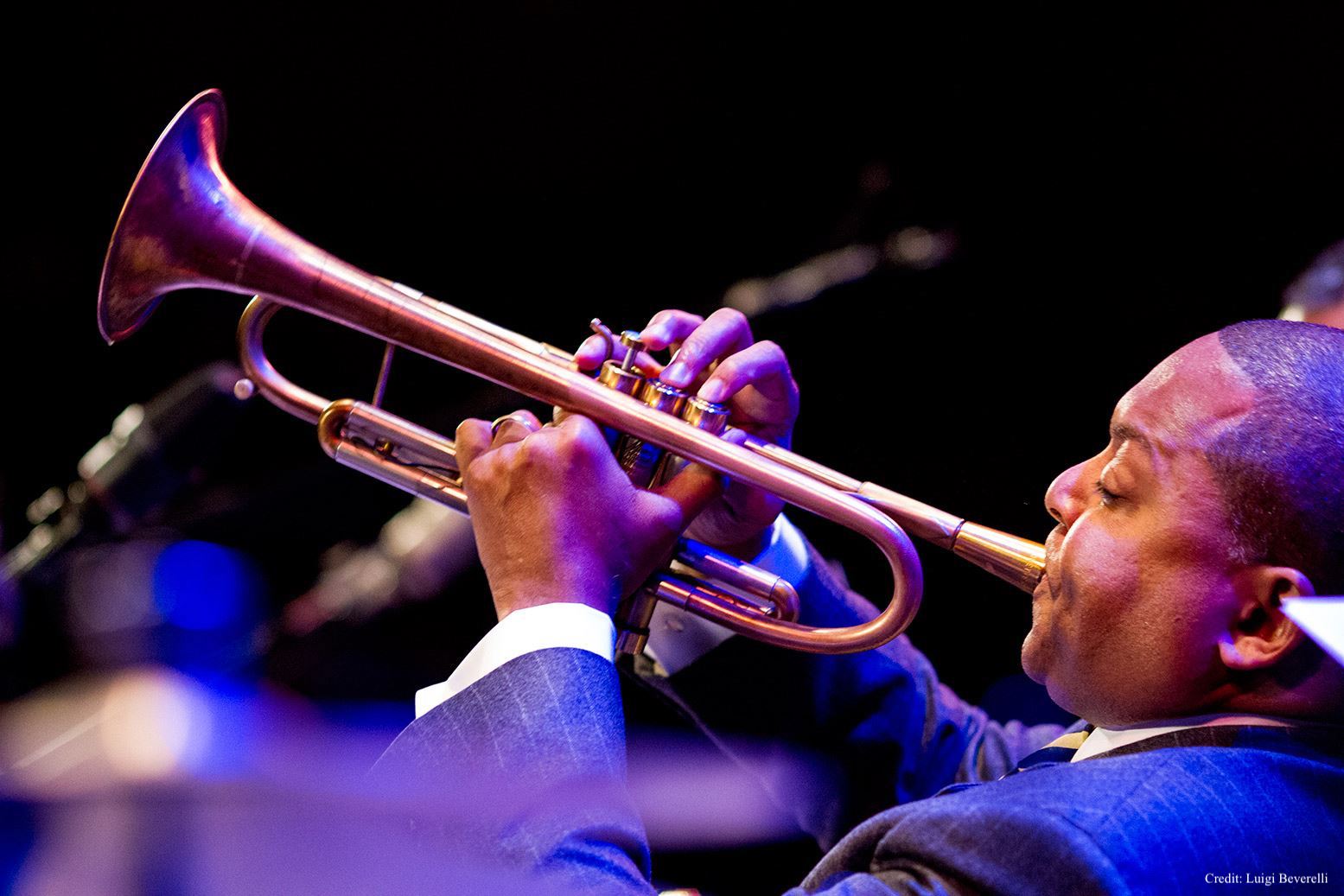This story is an excerpt from Stone Soup for the World: Life Changing Stories of Everyday People.
Told by Leslie R. Crutchfield
Adapted from “Democracy-Participation with Style” in Who Cares Magazine
Most people know Wynton Marsalis as a musician. But for students in Washington, D.C., he’s a special kind of teacher. When he’s not touring the country, he spends much of his time teaching jazz to kids, but he doesn’t just show them how to play a few notes. Instead, he uses jazz to teach them about life.
Roberto Perez has always admired Marsalis as a great trumpet player. Roberto’s been studying the instrument himself for the past eight years, and he thinks Wyn- ton is the best. One day, Roberto’s music teacher at Washington’s Duke Elling- ton School of Arts surprised him by taking him to the local NPR station to meet his hero. The next day, Wynton gave him a free trumpet lesson. Wynton’s hon- est critiques, not to mention two hours of concentrated attention and shared love of music, gave Roberto the encouragement he needed to do his best.
Five months later, they had another lesson over the phone. “We talked for three hours,” Roberto says. This time they expanded their range: they talked about life, and about the importance of persistence, dedication, concentration, and consistent practice. Through this conversation, Roberto discovered that his favorite trumpet player was also a real person. “He’s very giving, always making time for you,” he says.
Over the past decade, Wynton has visited more than one thousand schools and mentored several students like Roberto. “What a kid learns from jazz is how to express his individuality without stepping on somebody else’s,” he says. Wynton teaches them two main ideas. “The first thing I tell them is ‘Play anything you want, as long as it sounds like you. It’s important to develop yourself and your own vision.’ It’s about finding purpose in life,” he says. “Kids need to learn to walk their own path.”
The second lesson is that individualism has a flip side: “While pursuing your individuality, recognize that other people are also pursuing theirs.” So he teaches them how to control their self-expression. “Don’t just blurt something out. Adapt it to what the other guy is doing. Take your freedom and put it into the service of somebody else’s,” he tells the kids. “Being a good neighbor, that’s what jazz is all about.”
As a young child, Wynton learned some pretty tough lessons about being a good neighbor. He was born in New Orleans in 1961, the second of six sons. He remembers people calling him “nigger,” and being forced to integrate into hos- tile white schools. He was shocked to discover that the better a black student did, the more he was attacked.
Nonetheless, he bravely worked for straight-As and won every musical com- petition he entered. At seventeen, he was admitted to New York’s elite Juilliard School—one of the youngest musicians ever to enter. But the school didn’t fit his style, and Wynton left after his first year. He later joined Art Blakey’s Jazz Mes- sengers, eventually becoming the first artist to win Grammy awards in both the classical and jazz categories. The rest is musical history.
Although Wynton’s father, the great jazz pianist Ellis Marsalis, had the greatest influence on his music, it was his mother who taught him the most about life. He remembers her saying, “You better develop your mind, show some humility, and act like you had some home-training.” Wynton says that, next to his parents,
the writer Albert Murray had the most influence on him. “Murray said, ‘To hell with whining,’ ” Wynton explains. “Humanity doesn’t move forward by com- plaining about the fact that life is hard. You can’t discard the whole apple because one section is rotten.” Optimistic to the core, he adds, “You gotta cut that rotten section away and eat the rest.”
Wynton says his greatest gift is the ability to listen to the soul of a musician. That’s how he can teach students after hearing them play only once. “When they play and I hear their sound, I can tell what kind of grades they make in school and what kind of habits they have. I can just hear it in their sound. I know what they’re saying. Sometimes, they’re saying ‘Help’.” Wynton reaches out to them with more than a helping hand. Through jazz, he shows them a richer, fuller life.
Roberto is now a junior at Howard University and still playing his trumpet. Whenever Wynton comes to town, Roberto goes to see him perform. It’s been two years since they first met—and Wynton still gives him direction and advice—about the jazz world and the world in general. “Wynton is the best teacher I’ve ever had,” says Roberto. “He’s taught me, ‘If you love what you do you’ll always succeed.’” By example, he’s also shown Roberto how to work for that success. Roberto says, “If he wants something, he’ll do whatever it takes to accomplish his goal.”
To help bring music into the lives of children:
- Support music events in your community.
- Attend concerts given as fund-raisers for school music programs or scholarships.
- Invite people in your community to donate old musical instruments to schools.
- Call Rotary Clubs to learn how to donate instruments to developing countries.
To learn more about Wynton Marsalis and his Jazz for Young People program, visit
https://academy.jazz.org/jfyp/
This story is an excerpt from Stone Soup for the World: Life Changing Stories of Everyday People.


